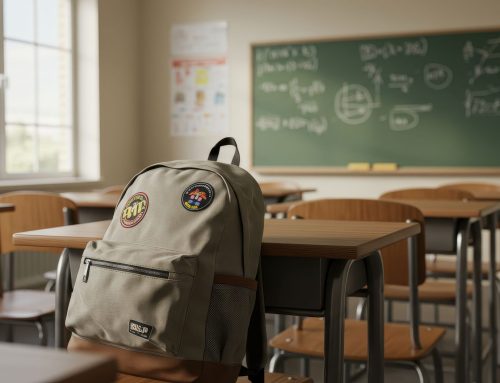Most of us know that June is LGBTQ Pride Month. Fewer of us know why. Pride Month coincides with the anniversary of the 1969 New York City (NYC) Stonewall uprising. Today, we celebrate Pride Month, but it wasn’t always a celebration. To fully appreciate what research tells us today, it is important to understand the past.
In the 1960s, it was common practice in many cities for the police to routinely raid bars and restaurants where the local LGBTQ+ community gathered. On Tuesday, June 24, 1969, the New York Police Department (NYPD) raided the Stonewall Inn, a bar in the Greenwich Village neighborhood of Manhattan owned by a member of the Genovese crime family. A few days later, around midnight on June 28, 1969, the NYPD again raided the Stonewall Inn and, again, employees and “drag queens and other cross-dressing patrons” were arrested. In 1969, in New York City, “masquerading” as a member of the opposite sex was a crime (History.com, 2025).
There were no cell phones in those days, so it is unclear exactly how events unfolded, but around midnight, as the police aggressively forced patrons and employees into police vans, people began to fight back. Others started throwing coins, bottles, and trash at the police. Some police were forced to retreat inside the Stonewall for protection before more police arrived, and more arrests were made.
The riot at the Stonewall Inn sparked six days of protests and violent clashes with the NYPD outside the Stonewall Inn and throughout the neighborhood. “By the time the Stonewall Riots ended on July 2, 1969, the gay rights movement went from being a fringe issue largely ignored by politicians and the media to front-page news worldwide” (History.com, 2025).
Recognition, Politics, and Uncertainty
As was noted in the Director’s Desk message celebrating Juneteenth, as we push forward, it is also important to look back, reflecting on our precarious march toward civil rights, and finding inspiration from this knowledge.
In 1999, President Bill Clinton issued a presidential proclamation declaring June “Gay and Lesbian Pride Month.” Barack Obama expanded the official Pride Month recognition in 2011, including the whole of the LGBTQ community. Although Joe Biden voted against same-sex marriage when he was in the Senate, he recognized Pride Month after taking office in 2021 and vowed to push for LGBTQ rights.
However, when elected in 2017, Donald Trump declined to officially recognize Pride Month. More troubling, on Inauguration Day in 2025, President Trump signed an executive order titled, “Defending Women from Gender Ideology Extremism and Restoring Biological Truth to the Federal Government” (Trump, 2015). The order “declares that the U.S. will recognize only two sexes — male and female — based on “immutable biological classification… It prohibits the use of gender identity in legal and administrative contexts, mandates that federal agencies, including those overseeing housing, prisons, and education, adhere to this definition when enforcing laws and issuing regulations. The order directs changes to government-issued identification documents, bans the promotion of ‘gender ideology’ in federal programs, rescinds previous executive actions that promoted gender identity inclusion, and instructs federal agencies to eliminate guidance or regulations that conflict with the new policy” (Fox News, 2025).
Protests, Celebrations, Attitudes, and Issues
While Pride Month, as we think of it today, captures attention for its colorful celebrations of identity, inclusion and belonging, the current political climate–hostile to diversity, equity, and inclusion (DEI)–has forced many cities and organizations to “put the protest back into Pride celebrations” (CNN, 2025). The visibility and steadfast commitment of the LGBTQ+ community remain as important today as in 1969.
Researchers have noted that surveying the LGBTQ+ community can be challenging due to factors like stigma, potential bias in responses, and the difficulty of accurately sampling a diverse population. However, today, for perhaps the first time, data about the demographics, attitudes, and concerns of the LGBTQ community are more readily available (Hughes et al., 2021).
In a 2022 survey by the Pew Research Center (2023) of over 12,000 U.S. adults, 7% described themselves as lesbian, gay, or bisexual. The graph below shows that the percentages varied significantly by age group and that more Americans identify as bisexual than as gay or lesbian. In the same survey, among Americans who described themselves as lesbian, gay, or bisexual, “the vast majority of women said they are bisexual (79%) while the majority of men said they are gay (57%).”
In a survey spanning 26 countries, Ipsos (2024) found that almost half (48%) of respondents answered that they have a relative, friend, or work colleague who [identifies as LGBTQ]. However, as shown in the figure below, the percentage varied widely by country.
Figure: Do you have a relative, friend, or work colleague who [identifies as LGBTQ]?”
In the same survey, 74% of respondents agreed that “Lesbian, gay and bisexual people should be protected from discrimination in employment, housing, and access to businesses such as restaurants and stores.” (75% of the U.S. respondents agreed.) Similarly, 72% agreed that “Transgender people should be protected from discrimination in employment, housing, and access to businesses such as restaurants and stores.” (71% of the U.S. respondents agreed.) The survey also examined attitudes by age groups. The figure below shows the results for the latter question across groups.
Figure: Transgender people should be protected from discrimination – % Agreement
The Ipsos survey also asked questions about same-sex marriage and parenting, insurance costs, participation in sports, and other important areas. While there are varied opinions regarding some of these issues, both within and outside the LGBTQ+ community, it is clear that, regarding legal protections and people’s attitudes, in general, much has changed for the better since the 1969 Stonewall Inn riots (Ipsos, 2024).
Morgan State University (MSU) Embraces the LGBTQ+ Community
“Morgan State University… is committed to helping students navigate the challenges of exploring their identities, coming out, and integrating sexuality and gender identity and expression into their lives” (MSU, n.d.). The following information and resources are provided on the MSU Counseling Center webpage.
Campus Resources include:
- Morgan State University Counseling Center staff is committed to helping students navigate the challenges of exploring their identities, coming out, and integrating sexuality and gender identity and expression into their lives.
- The LGBTQ Advisory Board, appointed by President David Wilson, comprises faculty, staff, and students. Its mission is to increase the resources and services to the LGBTQ community on campus and create a safe and welcoming environment for all students.
- S.O.U.L. (Students Open to Unique Love, formerly Rainbow Soul), Morgan State University’s gay-straight alliance, meets weekly, evenings in the University Student Center.
- Women’s and Gender Studies Program (WGST) offers an academic minor with courses on sexuality and gender, and holds seminars, discussions and events each semester.
Community Resources
- The Pride Center of Maryland seeks to achieve equality, understanding, and respect for the diversity of the greater Baltimore LGBT community while also providing quality support services, facilities, and professional resources for the development and well-being of individuals and groups.
- Chase Brexton Community Health Center is committed to delivering accessible health care throughout the lifespan, providing health care for the LGBT community, and ensuring that all patients, regardless of age, gender, religion, sexual orientation, ethnicity, or socioeconomic status, have access to high-quality health care.
- The Center for Transgender Health at Johns Hopkins Medicine offers person-centered, affirming, and comprehensive health and mental health services. Please also check out their resource guide.
- B’More Proud Queer College Coalition is the primary intercollegiate network and clearinghouse serving college & university students/faculty/staff in the Baltimore-Metro LGBTQIA community. We seek to promote personal and professional growth of this community through leadership development, academic scholarship, educational programming, and social networking opportunities. Bmore Proud sponsors an annual LGBTQ Leadership Summit each spring at one of the participating campuses. Morgan State University is a member institution of this coalition and supports the annual Leadership Summit.
- Equality Maryland/Free State Legal lobbies in Annapolis and across the state to create equal protection under the law for LGBT Marylanders and their families.
- Hearts and Ears, Inc. is a non-profit organization for Gay, Lesbian, Bisexual, Transgender, and Questioning individuals with mental health issues and concerns. The drop-in center provides weekly support groups that address addictions, mental health, and general concerns
- LGBTQ affirming religious groups in Baltimore:
- Unity Fellowship Church: www.ufcb.org, is a primarily African American, LGBTQ affirming Christian congregation in Baltimore;
- The Open Church, www.theopenchurchmd.org.
- See also Many Voices, www.manyvoices.org, A Black Church Movement for Gay and Transgender Justice. The MSU Counseling Center has booklets from Many Voices on sexual orientation and gender identity.
- Other LGBT affirming religious institutions in the area are listed at www.gaychurch.org/find a church, or
- http://www.gaychurch.org/list-churches-by-state/.
—————————————–
References:
Carlson, D.L. (2012). The Education of Eros: A History of Education and the Problem of Adolescent Sexuality (1st ed.). Routledge. https://doi.org/10.4324/9780203140178
History.com, 2025. A&E Television Network. https://www.history.com/articles/pride-month
Lopez, G., 2019. LGBTQ Pride Month, explained. Vox Media. https://www.vox.com/2014/6/8/5786368/lgbt-gay-pride-month-2019
Fox News, 2025. Trump’s ‘two sexes’ executive order comes on the heels of SCOTUS accepting another challenge to LGBTQ agenda.
CNN, 2025. Under financial and political pressure, the LGBTQ+ community is ‘putting the protest back in Pride’ celebrations.
https://www.cnn.com/2025/03/30/us/pride-month-protests-lgbtq
Brown, A., 2023. 5 key findings about LGBTQ+ Americans. Pew Research Center. https://www.pewresearch.org/short-reads/2023/06/23/5-key-findings-about-lgbtq-americans/
Ipsos, 2024. LGBT+ PRIDE 2024 A 26-Country Ipsos Global Advisor Survey June 2024
https://www.ipsos.com/sites/default/files/ct/news/documents/2024-05/Pride%20Report%20FINAL_0.pdf
Trump, D., 2025. Presidential Actions. The White House. https://www.whitehouse.gov/presidential-actions/2025/01/defending-women-from-gender-ideology-extremism-and-restoring-biological-truth-to-the-federal-government/
MSU, n.d. https://www.morgan.edu/counseling-center/resources/resources-for-students/lgbtq-resources#/.
Hughes, P., Harless, C., & Leach, K., 2021. Methods and strategies for effectively surveying the LGBTQ+ population. Research in Social and Administrative Pharmacy (RSAP). https://pubmed.ncbi.nlm.nih.gov/33773641/







